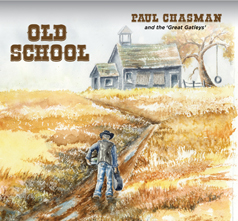Rules - October 15, 1999
 My
favorite scene in the movie, "Butch Cassidy and the Sundance
Kid" is when Butch (Paul Newman) is challenged by a seven-foot
giant to a knife fight. Butch Cassidy, clearly rattled and stalling
for time says, "Now wait a minute, we have to discuss the
rules." To which the giant replies, "Rules?! There're
no rules in a knife fight!" The words are not even out of
the giant's mouth when Butch hauls off and kicks the giant where
it hurts the most. Sundance (Robert Redford) quickly counts down
to fight: "1-2-3-GO!"
And Butch takes out the doubled over giant with one mighty, two-fisted
bolo punch. End of fight. My
favorite scene in the movie, "Butch Cassidy and the Sundance
Kid" is when Butch (Paul Newman) is challenged by a seven-foot
giant to a knife fight. Butch Cassidy, clearly rattled and stalling
for time says, "Now wait a minute, we have to discuss the
rules." To which the giant replies, "Rules?! There're
no rules in a knife fight!" The words are not even out of
the giant's mouth when Butch hauls off and kicks the giant where
it hurts the most. Sundance (Robert Redford) quickly counts down
to fight: "1-2-3-GO!"
And Butch takes out the doubled over giant with one mighty, two-fisted
bolo punch. End of fight.
Now, I'm not sure what that has to do with my topic of the day, but I sure like the story. The topic is my attitude toward rules. I guess I can say that I believe that rules should be addressed in two steps: 1) Learn them Rules challenge us with a delicious contradiction. If you play strictly by the rules, your music will probably be generic and boring. Yet, if you try to break the rules before you are fluent in their use, your music risks being ungrounded, disconnected. Most great musicians have been well-versed in their musical language, well-developed in traditional techniques, and were then able to spring from their foundation to expand the boundaries. The list goes on, from Beethoven to Stravinsky, from Charlie Parker to the Beatles; musicians who synthesized the music that preceded them, and created something new. I have mentioned in a previous article that I like music that leads the listener to think it's going in a particular direction, and then goes somewhere better. That concept can be applied more generally to musical structure and style. When a composer is grounded in tradition, the listener may be able to identify with the familiarity of the music. Yet, when the composer then breaks the rules, goes into foreign territory, there is a context for it, and the listener may be treated to a pleasant surprise. To put it another way, in order to jump, we need a place to jump from, and a place to land. These thoughts are on my mind because of my own contradictions. I recently wrote an article for this page about melody. In it, I expressed my opinion that melody is the thread that holds a piece of music together. I emphasized that music needs a story; without the story, there is little of substance to grab on to. I was inspired to write these thoughts because I had been engrossed in composing a suite for guitar and cello. In writing for cello, I became aware of the importance of melody line on a more acute level. On the guitar, it is easy to embroider, without really saying anything. Writing for cello, which is basically a single note instrument, it is much more difficult to hide behind ornamental tricks. You are out in front with a single, naked line. It had better say something. So, I had just finished writing my article preaching the virtues of melody, when I began composing a piece for two guitars and cello. And lo and behold, the piece I wrote broke all my self-imposed rules. There was no melody! There was no forward direction! The piece is called "Ancient Wonders," and it's inspired by an old-growth forest in my area. I tried to create an atmosphere that was organic, breathing, outwardly still yet full of inner movement and life. I wanted to capture the upward reaching of the trees, their majesty and their serene power. I created an 11/8 polyrhythmic groove, in which melodic fragments weaved, intertwined, and repeated while voices changed subtlely from the inside out. And I think it works! However, I do believe that if I didn't have a strong sense of melody, I would not have been successful writing this piece. There's the delicious contradiction. Music has lots of rules and regulations. Music theory, which I have referred to as our language, is the rule bible. I look at theory as a definition of how things interconnect, rather than a set of requirements. Technique has it's rules. I use what works for me and disregard the rest. I never could have developed my system of harmonics if I confined myself to traditional techniques. Maybe our own preconceptions are the most dictatorial rules of all. I try to continually question my habits, my tendencies, my opinions, knowing that there have been many times in my life when I've held on tight to what I was convinced was the way, until I found another direction and thought, "Hmm...that's kind of cool..." I'll end by paraphrasing a statement I heard attributed to Miles Davis, in which he said something like, Learn all your theory, learn everything you can about your instrument, then forget all that stuff and play. BACK TO ARCHIVES |

